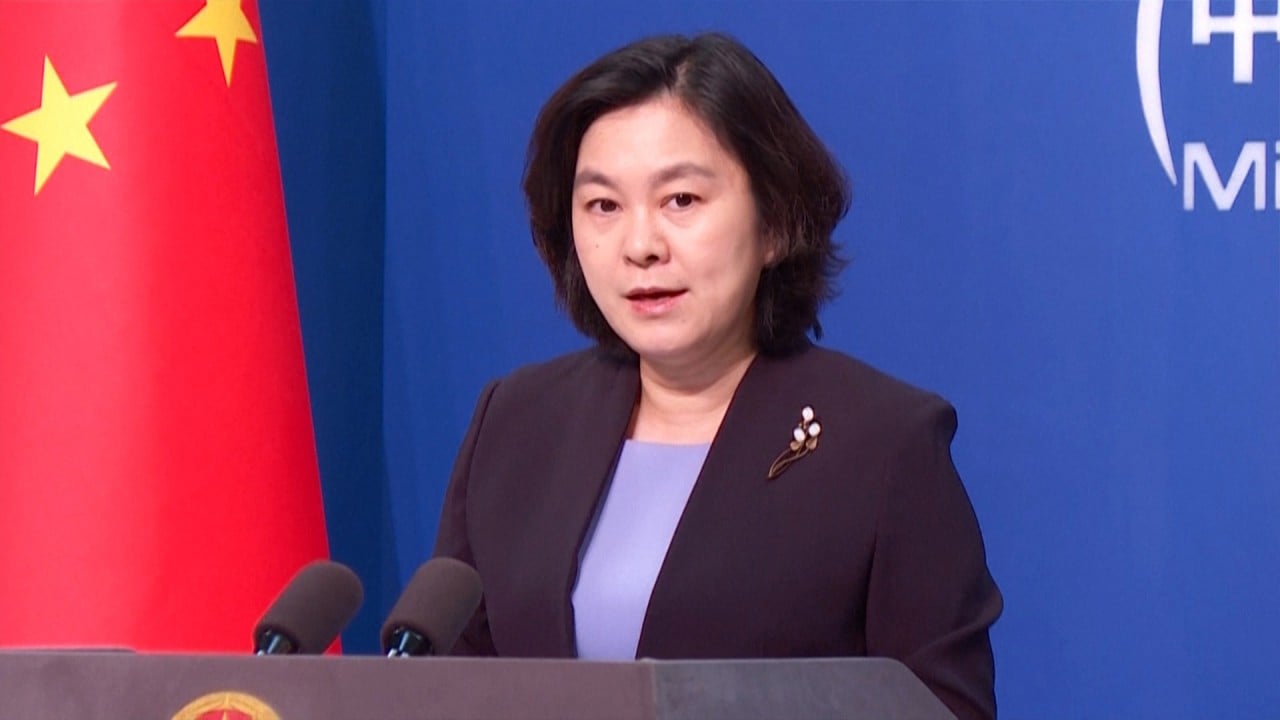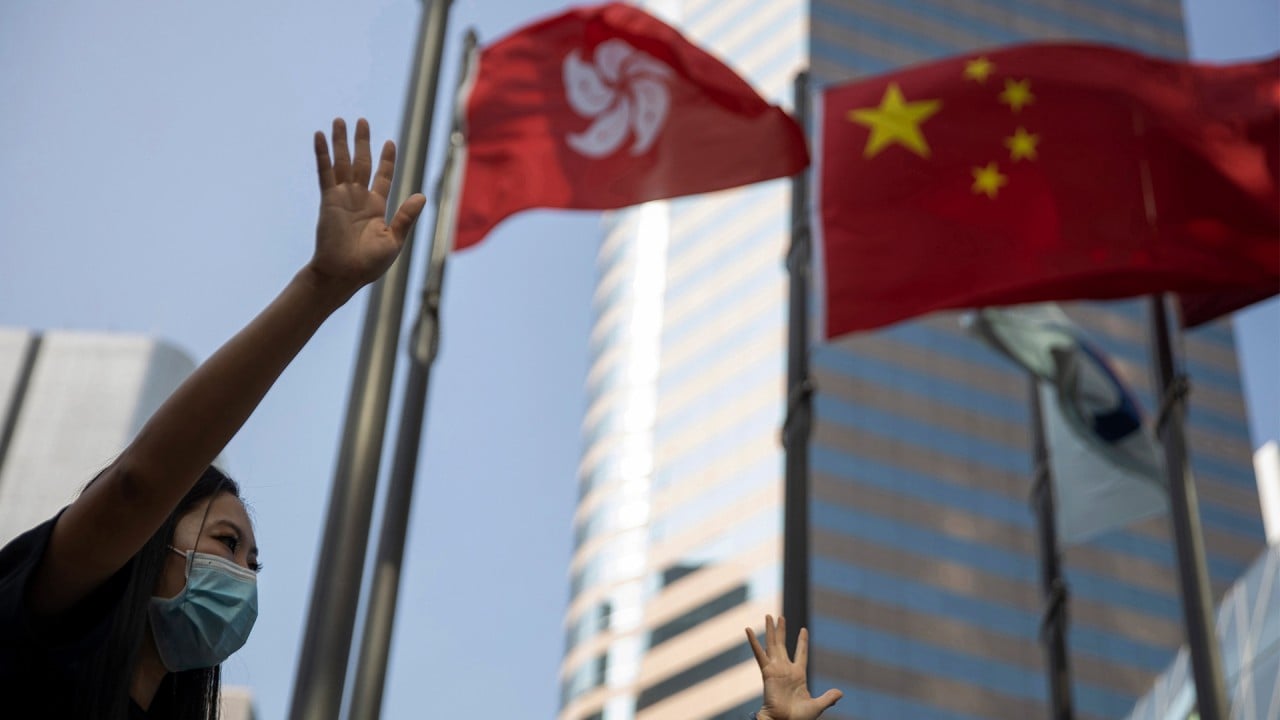
China’s Lockheed Martin sanctions reveal limited options in fighting economic war with US
- Because China needs investment inflows from the United States, Beijing must be careful about sanctioning American firms
- Boeing was sanctioned in 2010 for arms sales to Taiwan but continued to do strong business selling planes and parts to China’s commercial airlines
China’s announcement that it will impose sanctions on American firm Lockheed Martin for its involvement in the United States’ arms sale to Taiwan has highlighted a harsh reality for Beijing: it has far fewer choices to inflict pain on American businesses than Washington does against Chinese firms in the escalating conflict between the world’s two biggest economic powers.
The naming of Lockheed Martin marks a step further in Beijing’s careful strategy of hurting US businesses while trying to avoid damaging its own interests.
[It] is good for China to keep the sanction details vague. If not, future actions against the US will be predictable, and that will make China passive in strategy and tactics
So sanctions that Beijing imposes on US businesses, if there are any at all, are expected to be targeted and moderate, according to analysts.

00:44
China sanctions US officials and Congress members in response to Xinjiang ban
Shi Yinhong, an international relations professor at China’s Renmin University and an adviser to China’s State Council, the government’s cabinet, said it is hard to guess what other US companies China will target for sanctions after Lockheed Martin, because the two powers are not neck and neck when it comes to economic and technological leverage.
The announcement of sanctions against Lockheed Martin is part of China’s “reciprocal measures to counter the US’s all-around tough policies towards China”, Shi said.
But the story is different in the business field. China is in dire need of support from the US business community to maintain its position in global value chains and to balance the “hawkish” views in Washington.
China’s sanctions could be tempered, as was the case with Boeing, one of the two key suppliers of passenger jets for Chinese airlines but also a major US defence contractor.
In 2010, China announced that it would sanction Boeing over its involvement in an arms deal with Taiwan – the first time the Chinese government had ever issued such an announcement. But Boeing has continued to sell commercial aircraft to China and is deeply intertwined with China’s commercial aviation industry.
Analysts have suggested that any sanctions against Boeing would have backfired because China is highly reliant on imported components for its own commercial aircraft.
China has a litany of other regulatory tools at its disposal should it want to target foreign companies
China did not spell out how its new sanctions of Lockheed Martin will work in practice. Lockheed, like Boeing, has strong civilian product ties with China, selling helicopters through its subsidiary Shanghai Sikorsky Aircraft.
“Given this discrepancy, it is good for China to keep the sanction details vague. If not, future actions against the US will be predictable, and that will make China passive in strategy and tactics,” Shi said.
Jake Parker, senior vice-president of the US-China Business Council, said the group’s conversations with Chinese government officials and other stakeholders after the announcement of the Unreliable Entity List initiative indicated that the Chinese government is still having internal discussions about the legal rationale for creating the list.
In an interview with People’s Daily, the Communist Party’s mouthpiece, Cui Fan, an adviser to the Commerce Ministry, said companies that comply with US export controls could be seen by Beijing as abusing market dominance in China – an offence that can be punishable under China’s anti-monopoly law.

01:56
Hong Kong is no longer autonomous from China, US determines
But Parker said this avenue for sanctions may not be on firm ground, given that the anti-monopoly law includes no language on how restricting access to technology for non-market reasons is an abuse of market dominance.
“Many of our members are anxious about the potential implementation of the Unreliable Entity List, but China has a litany of other regulatory tools at its disposal should it want to target foreign companies: ‘social credit system’ blacklists, new cybersecurity reviews, anti-monopoly law enforcement, merger and acquisition review delays, increased customs scrutiny and the like,” he said.
China has to take some action, but it doesn’t want to escalate the situation either
Andy Mok, a senior research fellow at the Centre for China and Globalisation, a Beijing think tank, said China will only sanction or take other punitive actions against American companies when it is “forced by the US”, because some of the measures would be “very costly” to China itself.
“But the other side of that coin is that US technology companies are very dependent on China. Look at Intel, Qualcomm and Nvidia, all of these semiconductor companies. For some of them, more than 50 per cent of their sales come from China,” he said. “So, without those sales, these companies would not be able to fund investment in their next generation of technologies.
“China has to take some action, but it doesn't want to escalate the situation either. The hope is that, by first signalling that this is being contemplated, it might give the US a reason to reconsider and maybe be less hostile.”

